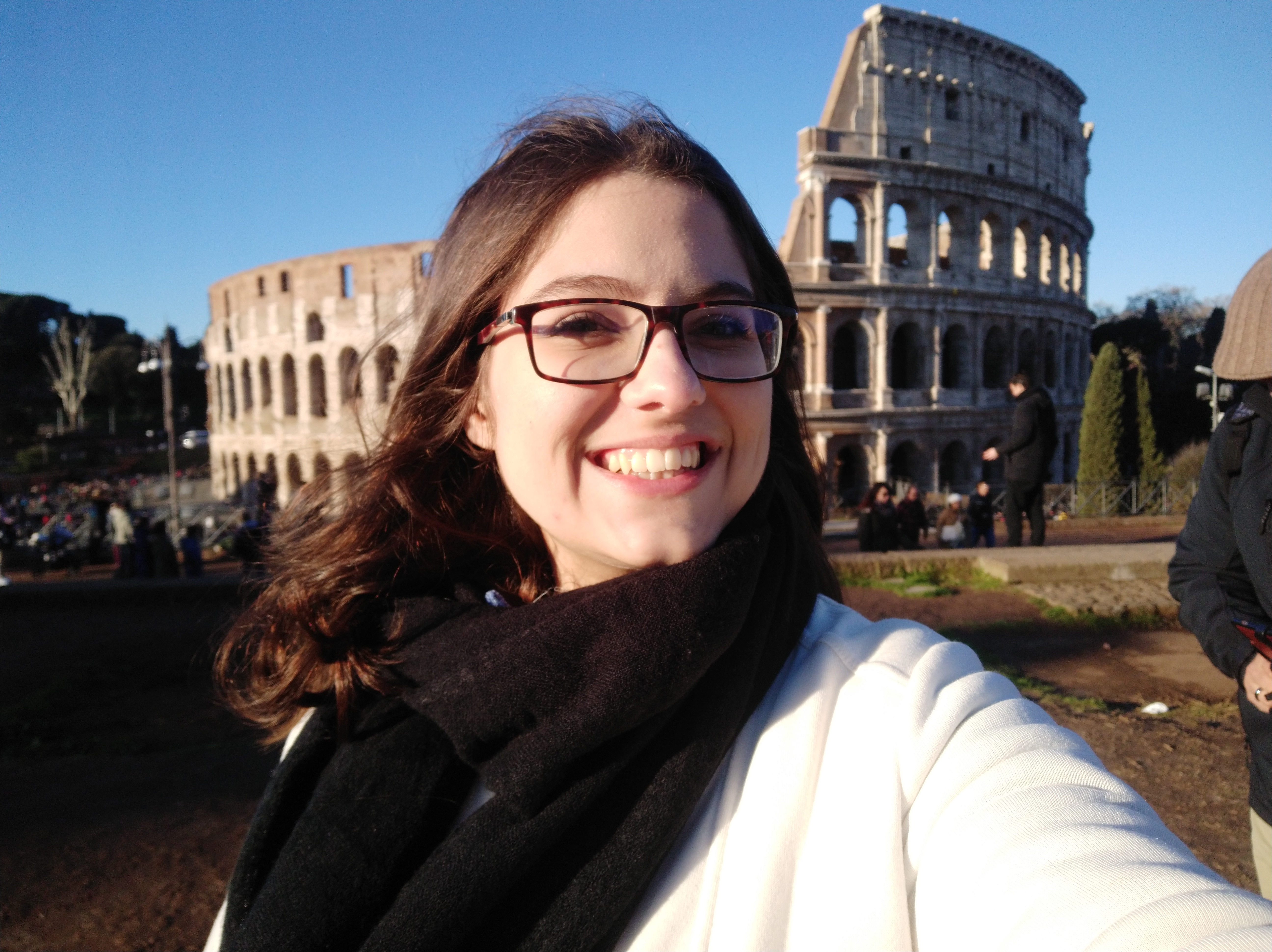What can you do with an Honours degree from the Faculty of Humanities and Social Sciences?
Our graduates end up all over the globe undertaking PhD's, working for governments, the private sector, non-for-profits, galleries, they go on to do teaching, researching, being project managers and undertaking many other roles! Having your Honours gives you a step up from the competition and opens you up to a world of opportunities.
Check out some of our graduates and be inspired to undertake 'One year. One extraordinary research experience'.
14. Jessica Zelli, BA (Hons) in Classics & Ancient History
 What was your Honours degree in?
What was your Honours degree in?
My Honours degree was in Classics and Ancient History, which can be a niche subject area for students studying in Australia. But the University of Queensland offered a wide variety of opportunities to connect me to resources and people all over in America and in Europe.
What advice would you give to students in the same discipline you studied?
My advice to Honours students would be to never stop looking for new opportunities, and to be unafraid to seek advice! There are open doors all around you, and speaking with people, and being unafraid to share your ideas and goals, is a great way to connect yourself to a wider community of like-minded people. There is no fault nor danger in admitting weakness, both in academia and in other areas of employment. By being aware of your own weaknesses, you can become aware of your strengths. And by becoming determined to improve, you show initiative and passion. These are valuable characteristics which can greatly improve all kinds of areas in your life, but most particularly your academic or work lifestyle. The Honours program is the perfect chance for you to cultivate these characteristics and to learn how to become and independent and self-motivated worker.
What challenges have you came across in your career, and how did you overcome them?
Pursuing an academic career is an arduous, challenging, yet rewarding journey. Challenges have included learning how to balance a heavier workload and processing more dense information in shorter time periods. Whenever I become overwhelmed, I recall some of the lessons I learnt through similar challenges in my Honours year. In my Honours year, I had overcome these challenges by learning the importance in adapting. I realised that sudden changes, whether that was in my own research career, employment, or even in my day-to-day life, could be overcome more effectively when I adapted and compromised my own ideas or desires to the situation at hand, instead of trying to fight these changes. This has enabled me to overcome a lot of academic and personal fears. Slowly, and by recalling my experiences in my Honours program, I am learning how to deal more effectively with stress, and to balance tasks and deadlines without damage to my health or personal life. This has been a huge benefit for me in my work lifestyle.
Any final tips for Honours students?
My final advice for any student considering undertaking an Honours program in HASS at UQ: Be bold! Don't be afraid to step out of your comfort zone and to take on challenges which you may perceive as 'too big' or 'unlike you'. The Honours program at UQ is designed to integrate you into a space where you can learn how to manage these challenges safely and effectively. By undertaking further research in HASS, you have the chance to expand upon your current research interests, and to apply the knowledge you learnt in your undergraduate degree in real settings.
What was the best thing about your program at UQ?
The best thing about my Honours degree program were the people. Not only was it a huge learning curve in my subject area, but I was able to work in a team of people that shared the same passions, goals, and interests as I did. I discovered the importance in collaborating and seeking out advice from those around me. I came to understand the importance and value of honesty and openness in the workplace, and formed a couple of lasting friendships. The absolute highlight was being awarded the Osiecki Honours Scholarship, which enabled me to take part in an internship program overseas the University of Sienna with Dr Janette McWilliam. This experience was incredibly rewarding. It benefited me by not only teaching me important employability skills I could apply within my own research endeavours, but outside academia as well.
How did your study help you to get to your current role, and what does your current role involve?
I am currently undertaking my Masters degree at The University of Queensland. In Ancient History, an Honours degree is a stepping stone into higher degree research. It prepares you with the credentials you need to access higher degree research and skills you need for pursuing an academic career. My Honours degree, however, also equipped me with a lot of skills that I can use both inside and outside academia. I had the chance to practice learning how to manage time, coordinate and lead classes, and to process information effectively and quickly. Currently, in my new academic role, I am expanding upon the skills I acquired in my Honours degree by working on a thesis, writing papers, becoming involved in societies and conferences, and connecting my research to the wider world.
